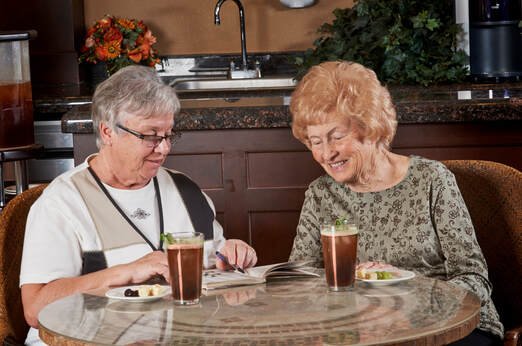Natural Remedies for Managing Chronic Inflammation
Chronic inflammation might not always make itself known right away, but over time, it can have a significant impact on your health. Linked to conditions like arthritis, heart disease, and even Alzheimer’s, long-term inflammation can quietly chip away at overall well-being. The good news? There are plenty of natural remedies that can help manage inflammation—many of which are simple lifestyle changes that fit right into a senior-friendly routine.
In senior living Centennial communities, residents often explore natural approaches to health alongside traditional treatments, finding gentle, effective ways to feel their best.
Eat Anti-Inflammatory Foods
What’s on your plate can make a big difference. Certain foods naturally fight inflammation and can be easily incorporated into daily meals.
Berries (like blueberries and strawberries) are rich in antioxidants that help neutralize free radicals, which contribute to inflammation.
Leafy greens such as spinach and kale offer a powerful punch of vitamins and nutrients.
Fatty fish like salmon, mackerel, and sardines are high in omega-3 fatty acids, which are well-known inflammation fighters.
Turmeric, thanks to its active ingredient curcumin, is one of nature’s most potent anti-inflammatories. Sprinkle it into soups or smoothies for an easy health boost.
Residents in retirement communities Centennial often enjoy meal plans that incorporate these types of foods, helping them maintain a balanced, inflammation-fighting diet.
Stay Active with Gentle Movement
Exercise doesn’t have to be intense to make a difference. In fact, regular, gentle movement can actually reduce inflammation in the body.
Walking is simple and effective, promoting circulation and joint health.
Yoga and Tai Chi combine stretching, balance, and mindfulness—perfect for reducing both stress and inflammation.
Water aerobics is another great option, providing a low-impact way to strengthen muscles and ease joint pain.
Focus on Quality Sleep
Poor sleep has been directly linked to increased inflammation. Establishing a consistent bedtime routine in senior living and creating a calming sleep environment can go a long way. Aim for 7-9 hours of quality sleep each night and try relaxing activities before bed, like reading or listening to soft music.
Reduce Stress with Mindfulness Practices
Stress is a major trigger for chronic inflammation. Simple mindfulness techniques can help reduce it and support overall health.
Meditation: Just 10 minutes a day can lower stress levels and ease inflammation.
Deep breathing exercises: Practicing slow, deep breaths can calm the nervous system and lower stress hormones.
Spending time outdoors: Nature walks or sitting in a garden offer both physical and mental health benefits.
Many retirement home Centennial communities offer group meditation classes or quiet spaces for reflection, making it easy to incorporate mindfulness into your daily routine.
Herbal Remedies That May Help
Certain herbs have been shown to naturally reduce inflammation:
Ginger: Known for its anti-inflammatory and antioxidant properties.
Green tea: Packed with compounds that help fight inflammation and support heart health.
Boswellia: Also known as Indian frankincense, this herbal extract has been used for centuries to manage inflammation, especially in joints.
Always talk to a healthcare provider before starting new supplements, especially if you’re taking other medications.




